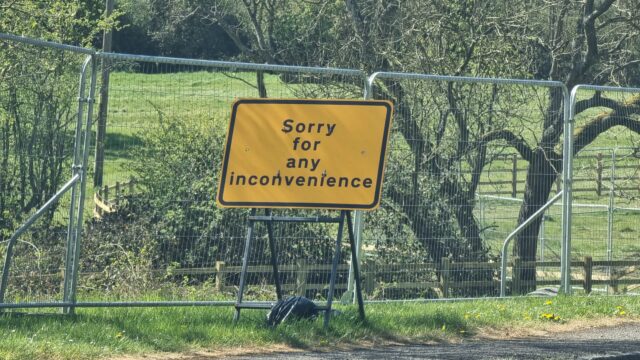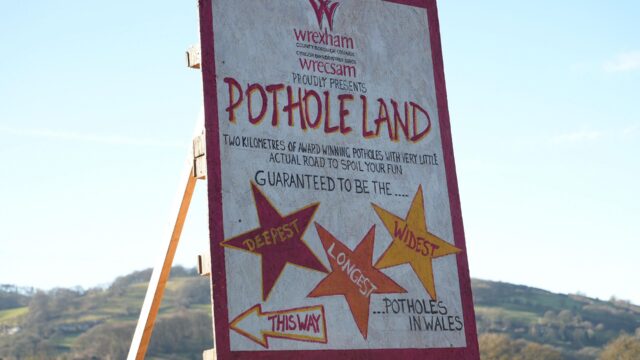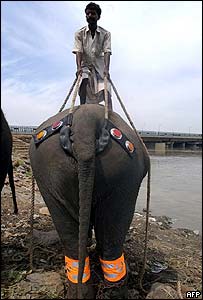Rarely seen nowadays, these UK road signs were eventually declared “too impolite” and “brusque” and have now almost entirely been replaced with the ones that Brits are familiar with today, which read “Terribly sorry for the inconvenience, I hope it’s no bother, it’s all our fault really, so sorry, really sorry, sorry, I’ll put the kettle on shall I?”
Tag: roads
Note #25538
This is funny, but I’m confident Wrexham’s potholes have nothing on the Trinbagonian ones I’ve been experiencing all week, which have sometimes spanned most of the width of a road or been deep enough that dipping a wheel into them would strike the road with your underchassis!
[Bloganuary] Road Trip!
This post1 is part of my attempt at Bloganuary 2024.2Today’s prompt is:
Think back on your most memorable road trip.
Runners-up
It didn’t take me long to choose a most-memorable road trip, but first: here’s a trio of runners-up that I considered3:
-
A midwinter ascent
On the last day of 2018, Ruth‘s brother Robin and I made a winter ascent of Ben Nevis, the highest mountain in the British Isles. But amazing as the experience was, it perhaps wasn’t as memorable as the endless car journey up there, especially for Robin who was sandwiched between our two children in the back of the car and spent the entire 12-hour journey listening to Little Baby Bum songs on loop.4 Surely a quick route to insanity.
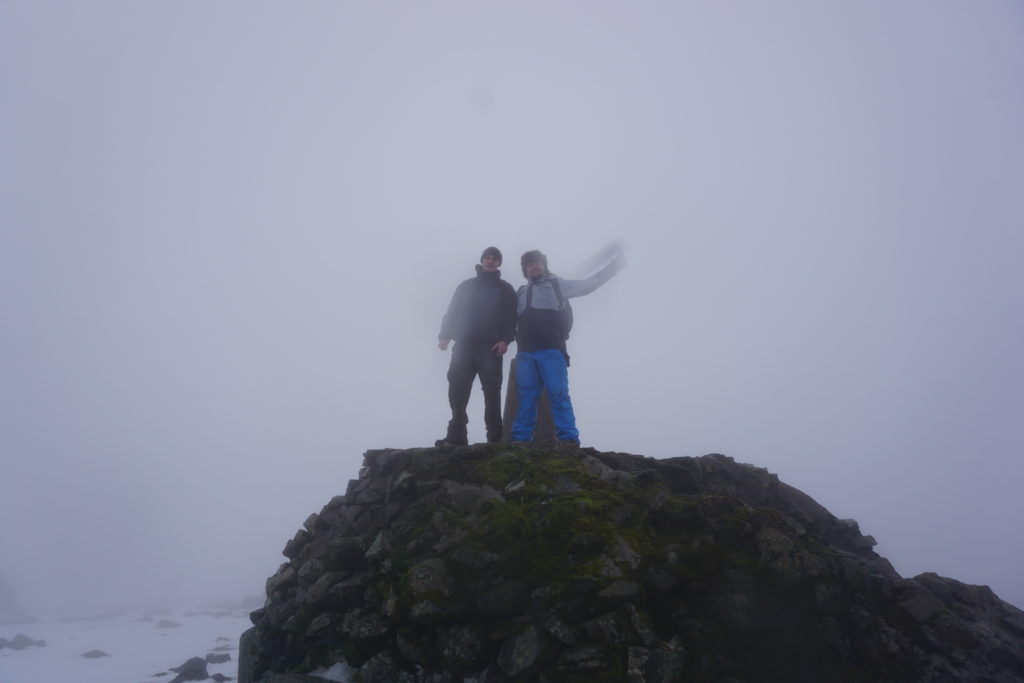
-
A childhood move
Shortly after starting primary school my family and I moved from Aberdeen, Scotland to the North-West of England. At my young age, long car journeys – such as those we’d had to make to view prospective new houses – always seemed interminably boring, but this one was unusually full of excitement and anticipation. The car was filled to the brim with everything we needed most-imminently to start our new lives5, while the removals lorry followed a full day behind us with everything less-essential6. I’m sure that to my parents it was incredibly stressful, but for me it was the beginning of an amazing voyage into the unknown.

-
Live on Earth
Back in 1999 I bought tickets for myself and two friends for Craig Charles’ appearance in Aberystwyth as part of his Live on Earth tour. My two friends shared a birthday at around the date of the show and had expressed an interest in visiting me, so this seemed like a perfect opportunity. Unfortunately I hadn’t realised that at that very moment one of them was preparing to have their birthday party… 240 miles away in London. In the end all three of us (plus a fourth friend who volunteered to be and overnight/early morning post-nightclub driver) attended both events back to back! A particular highlight came at around 4am we returned from a London nightclub to the suburb where we’d left the car to discover it was boxed in by some inconsiderate parking: we were stuck! So we gathered some strong-looking fellow partygoers… and carried the culprit’s car out of the way7. By that point we decided to go one step further and get back at its owner by moving their car around the corner from where they’d parked it. I reflected on parts of this anecdote back in 2010.
The winner
At somewhere between 500 and 600 road miles each way, perhaps the single longest road journey I’ve ever made without an overnight break was to attend a wedding.
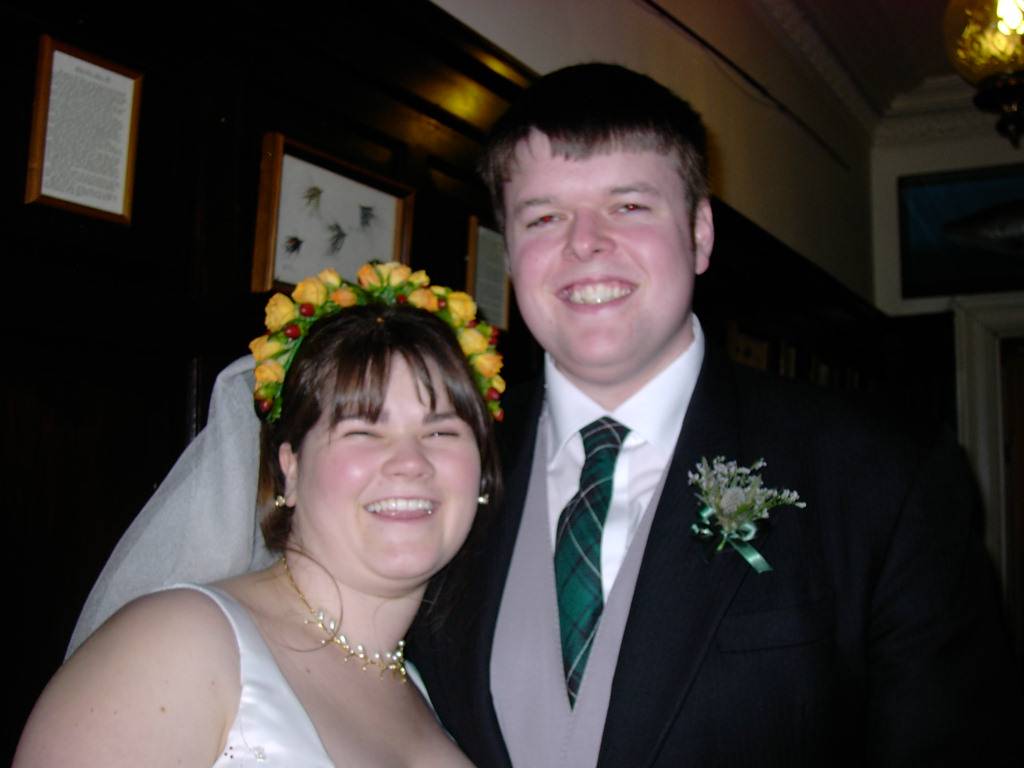
The wedding was of my friends Kit and Fi, and took place a long, long way up into Scotland. At the time I (and a few other wedding guests) lived on the West coast of Wales. The journey options between the two might be characterised as follows:
- the fastest option: a train, followed by a ludicrously expensive plane, followed by a taxi
- the public transport option: about 16 hours of travel via a variety of circuitous train routes, but at least you get to sleep some of the way
- drive along a hundred miles of picturesque narrow roads, then three hundred of boring motorways, then another hundred and fifty of picturesque narrow roads
Guess which approach this idiot went for?
Despite having just graduated, I was still living very-much on a student-grade budget. I wasn’t confident that we could afford both the travel to and from the wedding and more than a single night’s accommodation at the other end.
But there were four of us who wanted to attend: me, my partner Claire, and our friends Bryn and Paul. Two of the four were qualified to drive and could be insured on Claire’s car8. This provided an opportunity: we’d make the entire 11-or-so-hour journey by car, with a pair of people sleeping in the back while the other pair drove or navigated!
It was long, and it was arduous, but we chatted and we sang and we saw a frankly ludicrous amount of the A9 trunk road and we made it to and from what was a wonderful wedding on our shoestring budget. It’s almost a shame that the party was so good that the memories of the road trip itself pale, or else this might be a better anecdote! But altogether, entirely a worthwhile, if crazy, exercise.
Footnotes
1 Participating in Bloganuary has now put me into my fifth-longest “daily streak” of blog posts! C-c-c-combo continues!
2 Also, wow: thanks to staying up late with my friend John drinking and mucking about with the baby grand piano in the lobby of the hotel we’re staying at, I might be first to publish a post for today’s Bloganuary!
3 Strangely, all three of the four journeys I’ve considered seem to involve Scotland. Which I suppose shouldn’t be too much of a surprise, given its distance from many of the other places I’ve lived and of course its size (and sometimes-sparse road network).
4 Okay, probably not for the entire journey, but I’m certain it must’ve felt like it.
5 Our cargo included several cats who almost-immediately escaped from their cardboard enclosures and vomited throughout the vehicle.
6 This included, for example, our beds: we spent our first night in our new house camped together in sleeping bags on the floor of what would later become my bedroom, which only added to the sense of adventure in the whole enterprise.
7 It was, fortunately, only a light vehicle, plus our designated driver was at this point so pumped-up on energy drinks he might have been able to lift it by himself!
8 It wasn’t a big car, and in hindsight cramming four people into it for such a long journey might not have been the most-comfortable choice!
Newtown bypass in Powys opens after 70-year wait
This is a repost promoting content originally published elsewhere. See more things Dan's reposted.
It was 1949 when highways officials started to look at traffic issues affecting Newtown.
A multi-million pound bypass that has been 70 years in the planning officially opened in Powys on Thursday.
One haulier said Newtown bypass will make a “big difference” due to 45-minute hold-ups in the town, while the local AM said it was a “momentous” day.
The Welsh Government said the road will ease congestion by about 40% in the town centre.
A public notice printed in 1949 shows a bypass was being considered by the former Montgomeryshire County Council.
The four-mile (6.4km) road runs to the south of the town with two lanes in one direction and one in the opposite direction, to provide overtaking points.
…
Never thought I’d see the day. Back when she used to work in Newtown, Claire would routinely be delayed on her journey home by traffic passing through the town that could quite-justifiably have gone around it were it not for the lack of a decent trunk road, and she’d bemoan the continuing absence of the long-promised bypass. That was like 15 years ago… I can’t imagine what it’s been like for the people who’ve lived in Newtown, waiting for the bypass to be built, for their entire life.
In the time it’s taken to build this bypass, people who’ve been too young to drive have heard about it, grown up, had children of their own, and those people have had children who are now old enough to drive. The mind boggles.
Devon – the trip we’ll never forget
Our holiday in Devon last week turned out to be… memorable… both for happy holiday reasons and for somewhat more-tragic ones. Selected features of the trip included:
Croyde
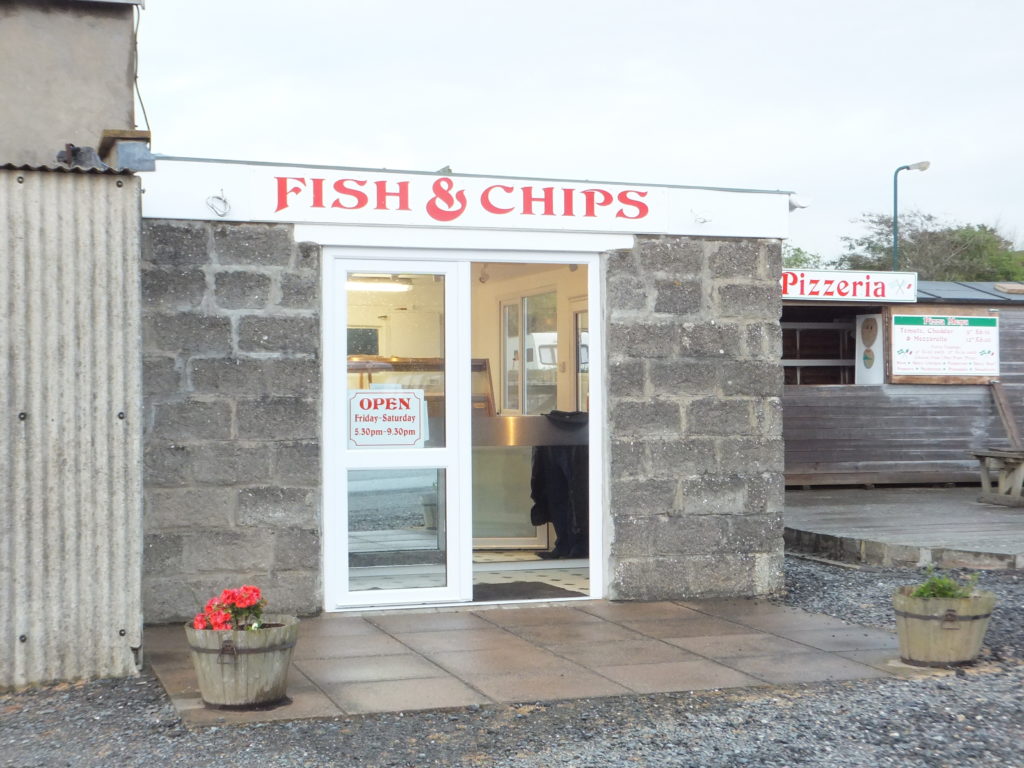
We spent most of the week in Croyde, a picturesque and tourist-centric village on Devon’s North coast. The combination of the life of a small village and being at the centre of a surfer scene makes for a particularly eccentric and culturally-unusual place. Quirky features of the village included the bakery, which seemed to only bake a half-dozen croissants each morning and sell out shortly after they opened (which was variably between 8am and 9am, pretty much at random), the ice cream shop which closed at lunchtime on the hottest day of our stay, and the fish & chip shop that was so desperate to “use up their stock”, for some reason, that they suggested that we might like a cardboard box rather than a carrier bag in which to take away our food, “so they could get rid of it”.
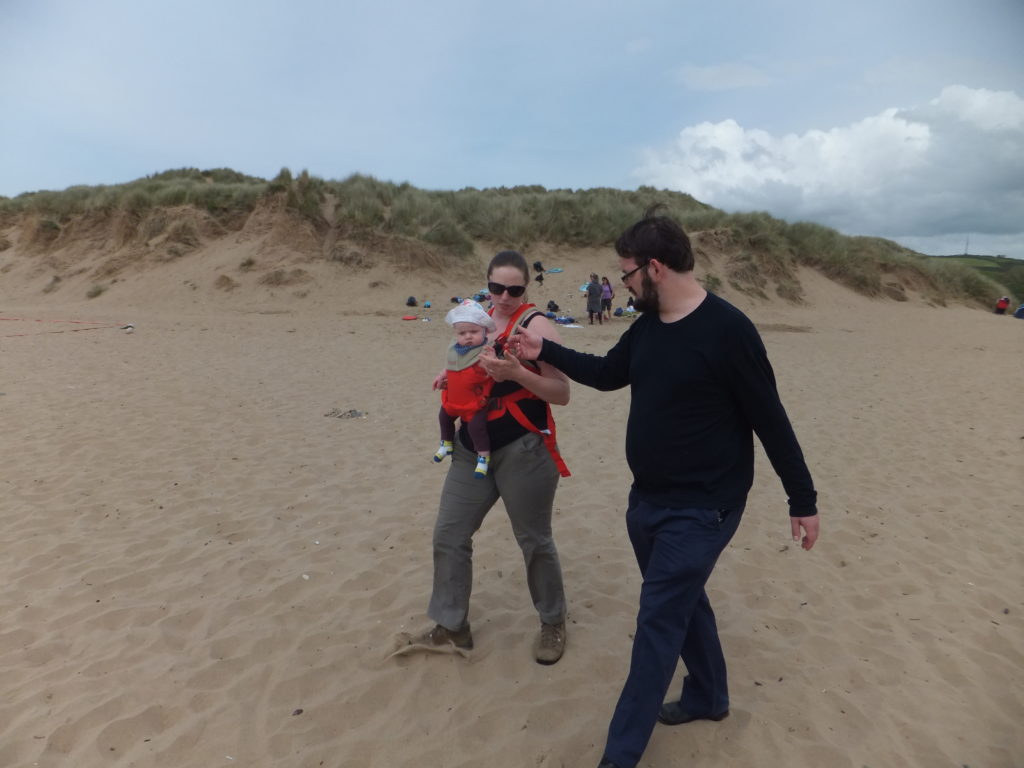
The Eden Project
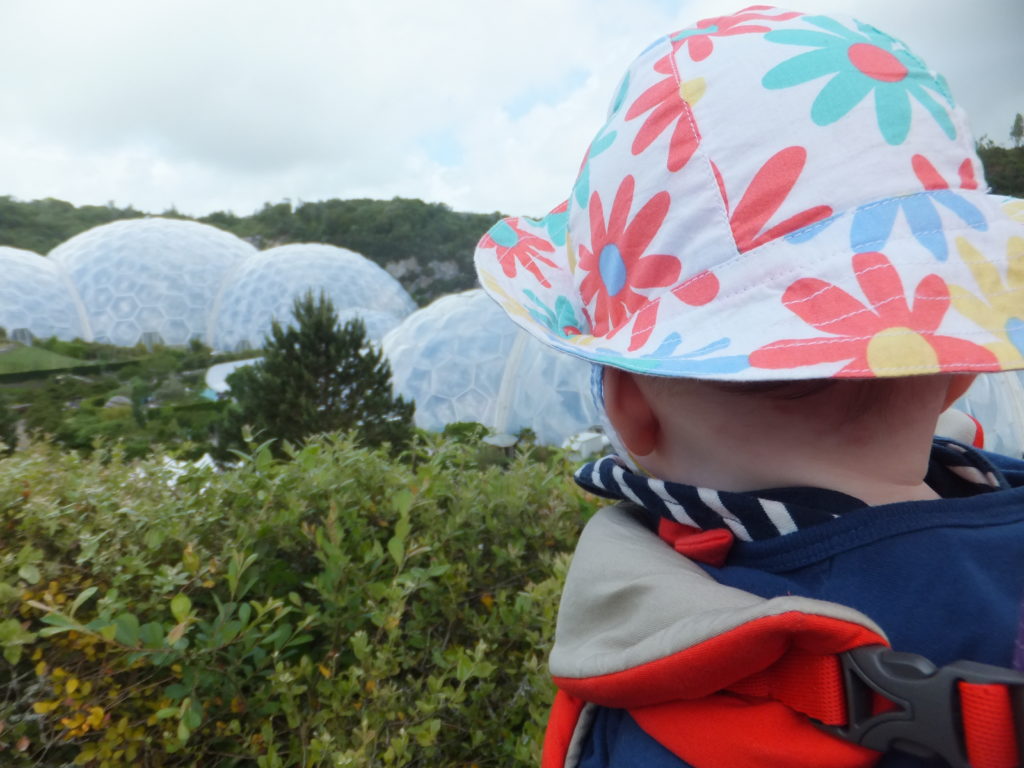
Ever since it opened in the early 2000s, I’d always wanted to visit The Eden Project – a group of biome domes deep in the valley of a former Cornish quarry, surrounded by gardens and eco-exhibitions and stuff. And since we’d come all of the way to Devon (via Cardiff, which turns out to be quite the diversion, actually!), we figured that we might as well go the extra 90 miles into Cornwall to visit the place. It was pretty fabulous, actually, although the heat and humidity of the jungle biome really did make it feel like we were trekking through the jungle, from time to time.
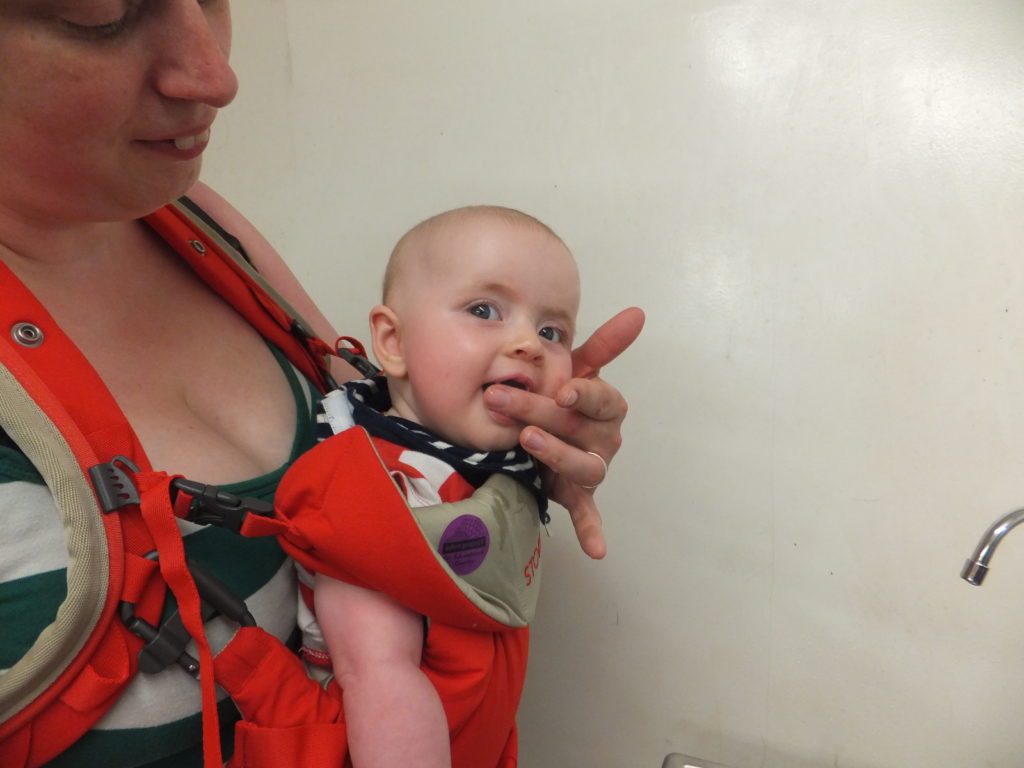
Geocaching
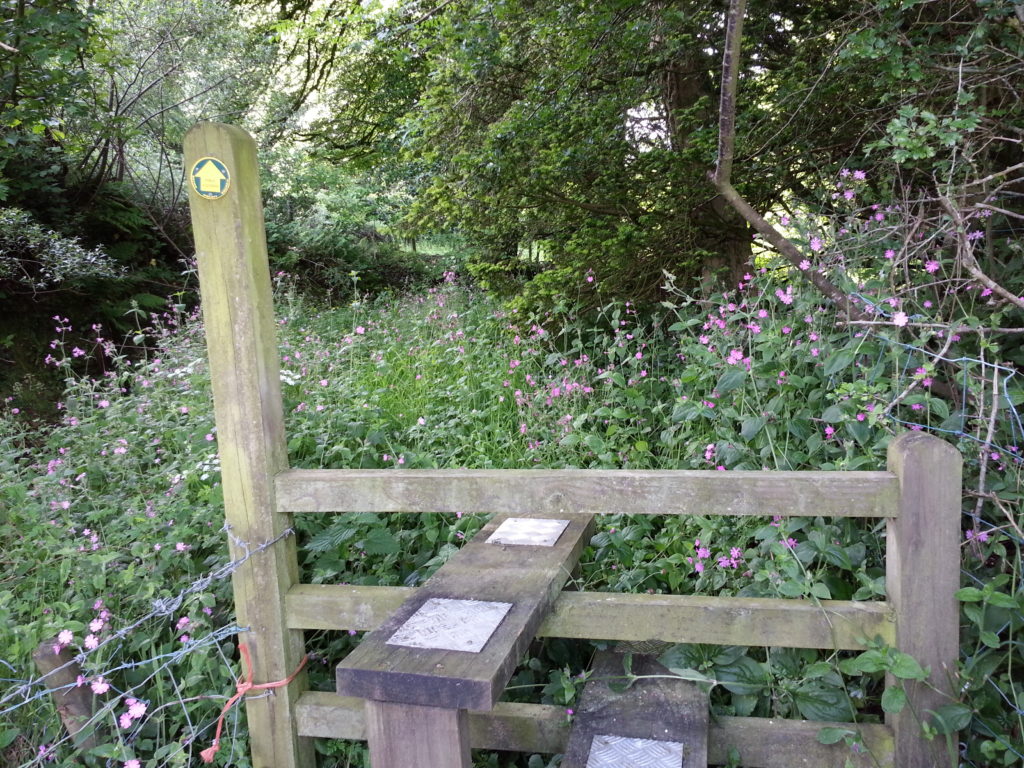
On one day of our holiday, I took an afternoon to make a 6½ mile hike/jog around the Northern loop of the Way Down West series of geocaches, which turned out to be somewhat gruelling on account of the ill-maintained rural footpaths of North Devon and taking an inadequate supply of water for the heat of the afternoon.
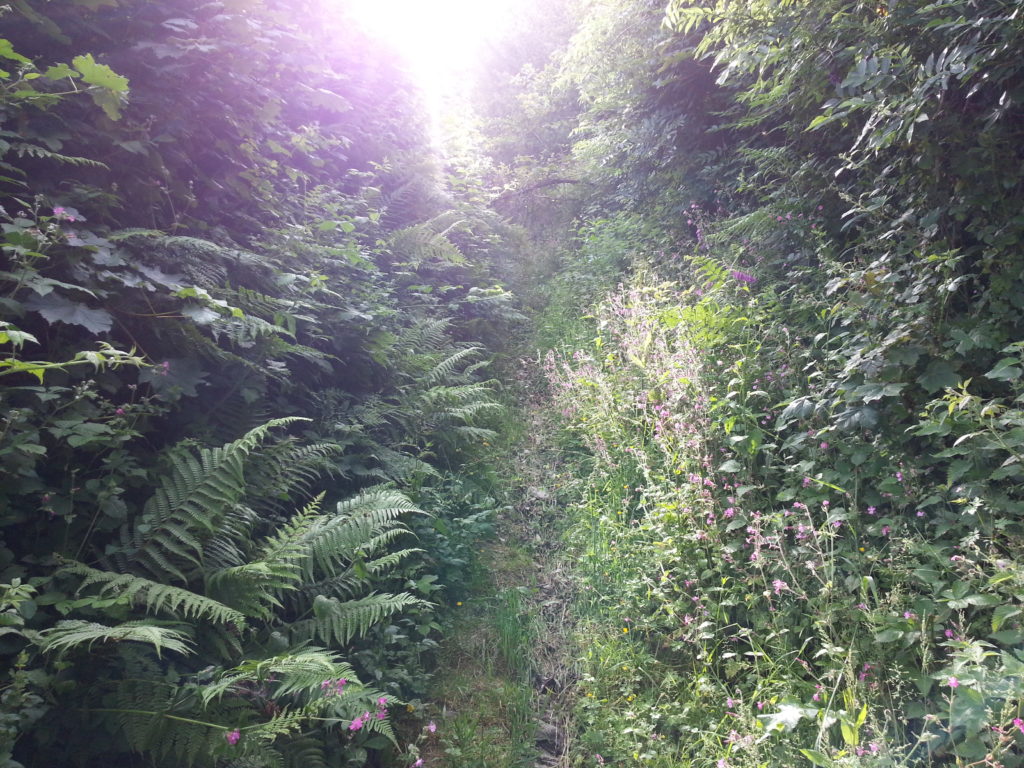
On the upside, though, I managed to find 55 geocaches in a single afternoon, on foot, which is more than three times my previous best “daily score”, and took me through some genuinely beautiful and remote Devon countryside.

Watermouth Castle
We took an expedition out to Watermouth Castle, which turned out to be an experience as eccentric as we’d found Croyde to be, before it. The only possible explanation I can think of for the place is that it must be owned by a child of a hoarder, who inherited an enormous collection of random crap and needed to find a way to make money out of it… so they turned it into something that’s 50% museum, 50% theme park, and 100% fever dream.

There’s a cellar full of old bicycles. A room full of old kitchen equipment. A room containing a very large N-gauge model railway layout. Several rooms containing entertainments that would have looked outdated on a 1970s pier: fortune tellers, slot machines, and delightfully naïve peep-show boxes. A hedge maze with no exit. A disturbingly patriotic water show with organ accompaniment. A garden full of dancing gnomes. A hall of mirrors. A mock 1920s living room. A room full of primitive washing machines and their components. The whole thing feels schizophrenic, but somehow charming too: like a reminder of how far entertainment and conveniences have come in the last hundred years.
Baggy Point
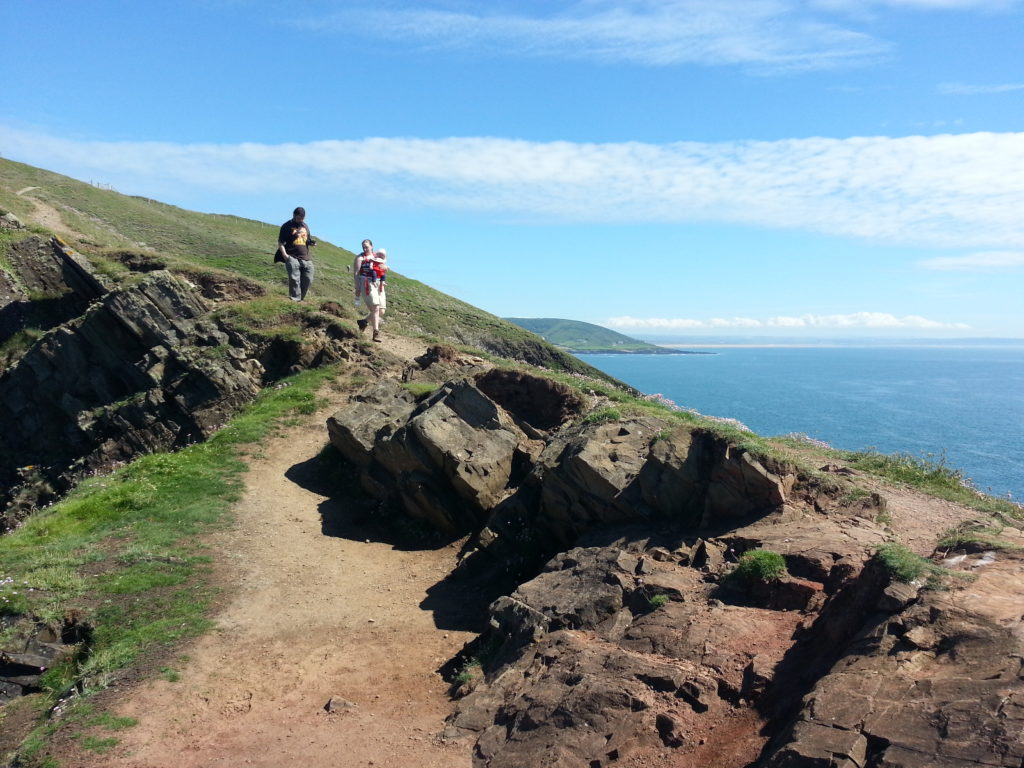
We took a hike out to beautiful Baggy Point, a beautiful headland stretching out into the Atlantic to make it the Easternmost point in North Devon. It was apparently used by soldiers training for the D-Day landings, but nowadays it seems mostly to be used to graze goats. The whole area made me reminisce about walks to Borth along the Ceredigion coast. Unfortunately for Ruth and JTA, who headed back to our accommodation before me, I’d failed to hand them the key to the front door before we parted ways and I went off to explore the rest of the headland, and in my absence they had to climb in through the window.
The Collision
For all of the wonderful things we got up to in Devon, though – everything above and more besides – the reason that we’ll no-doubt never forget this particular trip came as we set off on our way home.
[spb_message color=”alert-warning” width=”1/1″ el_position=”first last”]Warning: this section discusses a tragic car accident.[/spb_message]
About an hour after we set off for home on our final day in Devon, we ended up immediately behind a terrible crash, involving two cars striking one another head-on at an incredible speed. We saw it coming with only seconds to spare before both vehicles smashing together, each thrown clear to a side of the road as a cloud of shattered glass and metal was flung into the air. JTA was driving at this point, and hit the brakes in time to keep us clear of the whirling machines, but it was immediately apparent that we were right in the middle of something awful. I shouted for Ruth and JTA to see what they could do (they’re both Red Cross first aiders, after all) as I phoned the emergency services and extracted our location from the SatNav, then started working to ensure that a path was cleared through the traffic so that the ambulances would be able to get through.
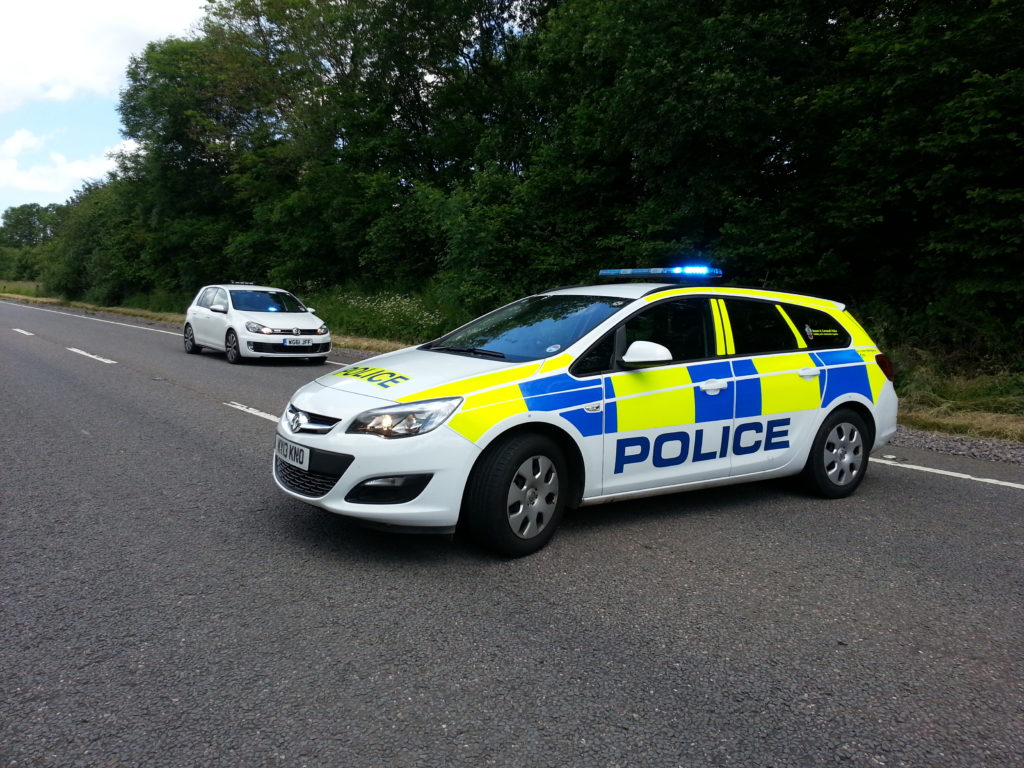
A passer-by – an off-duty police officer – joined Ruth and I in performing CPR on one of the drivers, until paramedics arrived. My first aid training’s rusty compared to Ruth and JTA’s, of course, but even thinking back to my training so long ago, I can tell you is that doing it with a real person – surrounded by glass and oil and blood – is a completely different experience to doing it on a dummy. The ambulance crew took over as soon as they arrived, but it seems that it was too late for her. Meanwhile the driver of the other car, who was still conscious and was being supported by JTA, hung on bravely but, local news reported, died that afternoon in hospital. Between the two cars, two people were killed; the third person – a passenger – survived, as did a dog who was riding in the back of one of the cars.
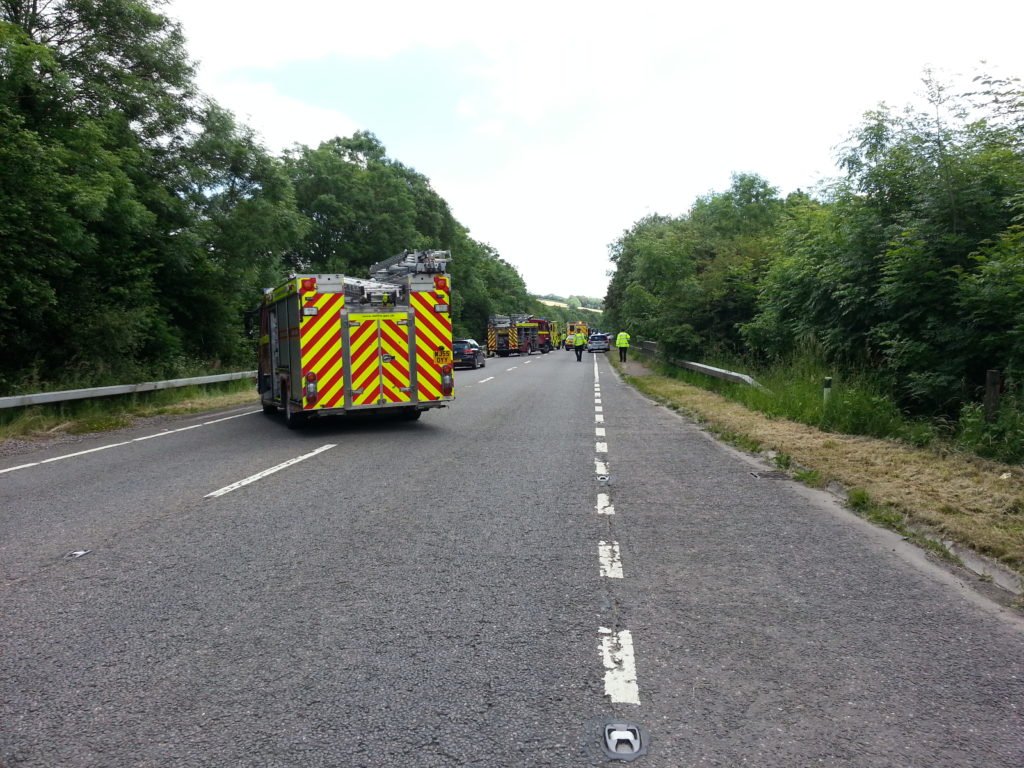
I am aware that I’ve described the incident, and our participation in its aftermath, in a very matter-of-fact way. That’s because I’m honestly not sure what I mean to say, beyond that. It’s something that’s shaken me – the accident was, as far as I could see, the kind of thing that could happen to any of us at any time, and that realisation forces upon me an incredible sense of my own fragility. Scenes from the experience – the cars shattering apart; the dying driver; her courageous passenger – haunt me. But it feels unfair to dwell on such things: no matter what I feel, there’s no way to ignore the stark truth that no matter how much we were affected by the incident… the passenger, and the families and friends of those involved, will always have been affected more.
It took hours for us to get back on the road again, and the police were very apologetic. But honestly: I don’t think that any of us felt 100% happy about being behind the wheel of a car again after what had just happened. Our journey back home was slow and cautious, filled with the images of the injuries we’d seen and with a newly acute awareness of the dangers of the glass-and-metal box we sat inside. We stopped at a service station part-way home, and I remarked to Ruth how surreal it felt that everybody around us was behaving so normally: drinking a coffee; reading a paper; oblivious to the fact that just a few tens of miles and a couple of hours away, people just like them had lost their lives, doing exactly what they were about to go and do.
It’s all about perspective, of course. I feel a deep sorrow for the poor families of the people who didn’t make it. I feel a periodic pang of worry that perhaps there were things I could have done: What if I’d have more-recently practised first aid? What if I’d more-quickly decoded our position and relayed it to the operator? What if I’d have offered to help Ruth immediately, rather than assuming that she had sufficient (and the right kind of) help and instead worked on ensuring that the traffic was directed? I know that there’s no sense in such what-if games: they’re just a slow way to drive yourself mad.
Maybe I’m just looking for a silver lining or a moral or something in this story that I just can’t find. For a time I considered putting this segment into a separate blog post: but I realised that the only reason I was doing so was to avoid talking about it. And as I’m sure you all know already, that’s not a healthy approach.
Right now, I can only say one thing for certain: our holiday to Devon is a trip I’ll never forget.
Roadspotters
Recently, I learned that the roads in Great Britain are numbered in accordance with a scheme first imagined about ninety years ago, and, as it evolved, these road numbers were grouped into radial zones around London (except for Scotland, whose road numbering only joined the scheme later). I’d often noticed the “clusters” of similarly-numbered roads (living in Aberystwyth, you soon notice that all the A and B roads start with a 4, and I soon noticed that the very same A44 that starts in Aberystwyth seems to have followed me to my home here in Oxford).
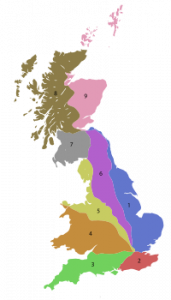
Who’d have thought that there was such a plan to it. If you’re aware of any of the many roads which are in the “wrong” zone, you’d be forgiven for not seeing the pattern earlier, though. However, seeing all of this attempt at adding order to what was a chaotic system for the long period between the Romans leaving and the mid-20th century makes me wonder one thing: are there “roadspotters”?
There exist trainspotters, who pursue the more-than-a-little-bit-nerdy hobby of traveling around and looking at different locomotives, marking down their numbers in notepads and crossing them off in reference books. Does the same phenomena exist within road networks?
It turns out that it does; or some close approximation of it does, anyway. One gentleman, for example, writes about “recovering” road signs formerly of the A6144(M), which – until 2006 – was the UK’s only single-carriageway motorway. A site calling itself The Motorway Archive has a thoroughly-researched article on the construction history of the M74/A74(M) from Glasgow to Carlisle. Another website – and one that I’m embarrassed to admit that I’d visited on a number of previous occasions – reviews every motorway service area in Britain. And, perhaps geekiest of all, the Society for All British and Irish Road Enthusiasts (SABRE) maintains a club, meetups, and a thoroughly-researched wiki of everything you never wanted to know about the roads of the British Isles.
From what started as a quick question about British road numbering, I find myself learning about a hobby that’s perhaps even geekier than trainspotting. Thanks, Internet.
Safe Road Use Of Elephants
Aside from the main point of this article, I found it most amusing to find that state-run Indian elephants are fitted with reflectors ‘in an attempt to prevent road accidents’. What does it take to accidentally crash into an elephant?
Almost Passed This On The Way To Work
Another fantastic story from the BBC: this one took place yesterday, and so I missed it, as I didn’t come in to work. Apparently this lorry full of cheese caught fire on the A44, on my usual route to the office. The driver said: “I saw the fire starting but by the time I’d gone back to the cab to get the fire extinguisher the whole lot had started to go on fire.”
1. Cheese burns?
2. What route did he take back to the cab? Via Bow Street?
3. How does combusion occur in the hold of a moving lorry full of milk produce?
